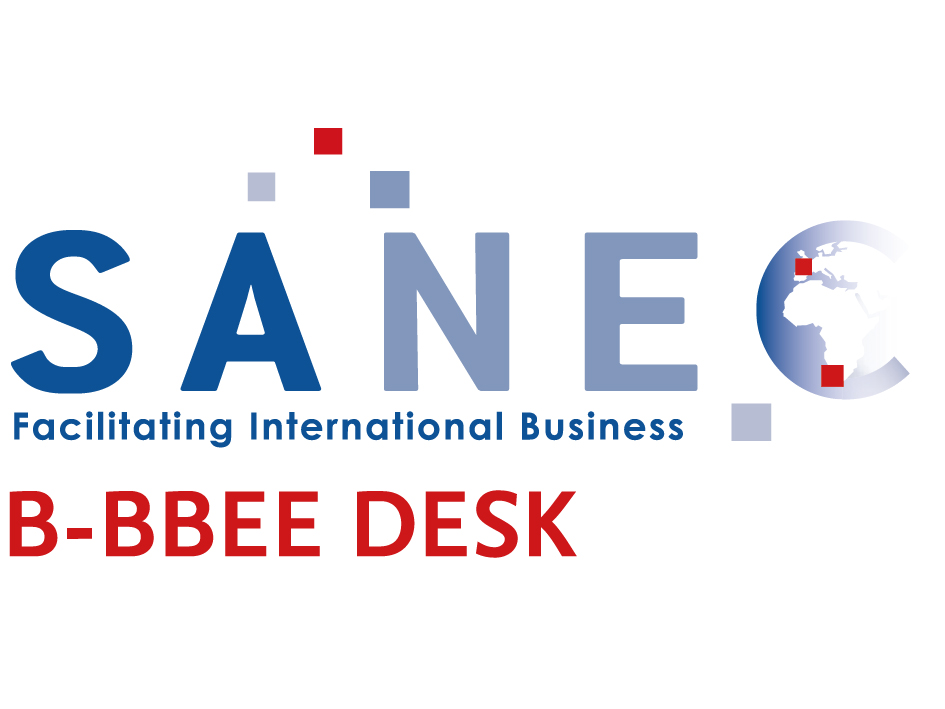B-BBEE Desk
Contact us:
Website: www.sanecbeedesk.co.za
Email: [email protected]
Tel: +27 (0) 11 568 1234
Broad Based Black Economic Empowerment (B-BBEE) is a key element in doing business in South Africa. Minister of Trade and Industry, Rob Davies announced the revised B-BBEE codes of practice on the 11th of October 2013. These new codes are game changers for the economic transformation in South Africa and both small and large companies will have to make efforts to understand and implement them.
B-BBEE involves elements of human resource development, employment equity, enterprise development, preferential procurement, as well as investment, ownership and control of enterprises and economic assets. Although many companies view BEE as a loaded concept that is all about ‘ticking boxes’, it is meant to be “an integrated and coherent socio-economic process that directly contributes to the economic transformation of South Africa and brings about significant increases in the numbers of non-white people that manage, own and control the country’s economy, as well as significant decreases in income inequalities”. In other words, it urges the private sector to assist in the transformation agenda of the South African nation.
Scorecard
Companies wishing to do business with the government, whose clients do business with the government, or are under government regulation, should aspire to achieve at least a level 4 on the eight-rung scorecard. While micro-enterprises — companies with a turnover of R10m or less — will be exempt and immediately qualify for level 4, small companies with a turnover of between R10m and R50m will encounter more challenges, unless they are 100% black-owned.
Codes of Good Practice
The new B-BBEE Codes of Good Practice has come into effect in 2014 and the revised pillars will fundamentally change how businesses address B-BBEE. The new BEE Scorecard is measured based on Ownership; Management Control; Skills Development; Enterprise and Supplier Development (ESD) and Socio-Economic Development (SED). Priority Elements are Ownership, Skills Development (SD) and Enterprise and Supplier Development.
Essential
Non-compliance in the priority elements leads to the discounting of one level on the eight-rung ladder. Therefore, it is essential that companies take B-BBEE compliance seriously in light of the new codes and seek creative ways to implement them.
The Right Partners
SANEC has the right partners who offer smart solutions for companies to achieve better B-BBEE scores in a sustainable way and with tangible results. Their strategies do not only stimulate economic growth and job creation, but also make sure that your company benefit from the developments accomplished.
SANEC B-BBEE Desk
The SANEC B-BBEE Desk: A One-stop-shop for all your questions about B-BBEE. It is an integrated approach offering clarity, education and services on BEE to companies that are looking to invest or to do business in South Africa. The Desk can be utilized by both members and non-members. Members can enjoy an attractive discount for this service. Membership of the B-BBEE Desk is an extension of the SANEC membership, which will give you access to services at discounted prices. Services on B-BBEE include training, rating, verification, consulting, collective advocacy and lobbying and reports.
Besides the operations of the B-BBEE Desk, SANEC will be hosting a series of seminars to inform and to educate companies about this legislation as well as highlight the implications and opportunities thereof. SANEC will bring together legislation and industry stakeholders as well as its network of companies to engage on opportunities, challenges and obstacles.
B-BBEE rating Certificates
SANEC and partners are able to help with your application for a B-BBEE rating certificate at a SANAS accredited verification agency. B-BBEE rating is a critical part of the monitoring and evaluation of B-BBEE compliance. Based on B-BBEE implementations by your company on any of the five elements, points are scored based on the set targets for each of the five elements. All the points are added to a total to establish a compliance rating score which will determines the level of B-BBEE Status you have achieved. The status varies from ‘non-compliant status’ to ‘level one’, which is the highest status level a company can achieve. The amended codes provide an exemption for newly established companies, companies with less than R10M and lower targets for R50M turnover companies.
B-BBEE Advisory
The Desk provides advisory services for companies who need assistance in understating how B-BBEE could affect the organizational design. The Desk shall provide B-BBEE advice on how to companies could remain focused on their activities while at the same time meeting the requirements of B-BBEE.
B-BBEE Implementation Strategy
For B-BBEE to be implemented successfully, all companies – especially large businesses – should have a well-defined strategy. A B-BBEE implementation strategy is a tool to ensure that the company sets out clear objectives on what targets it aims to achieve, the timelines and methods. Progress reports are kept with the help of an online tool, enabling and ensuring constant improvement. Based on annual B-BBEE rating of participating companies, the SANEC B-BBEE Desk will draft an annual report stipulating the challenges associated with B-BBEE implementations which is used as a lobby tool towards the South African policy makers.
B-BBEE Training
The Desk provides training programmes to assist companies in understanding and dealing with the legal requirements, B-BBEE concepts and the documentation required to claim points for each element. The programs will also include sharing best practice models, technical interpretation and cases studies from SANEC stakeholders.

